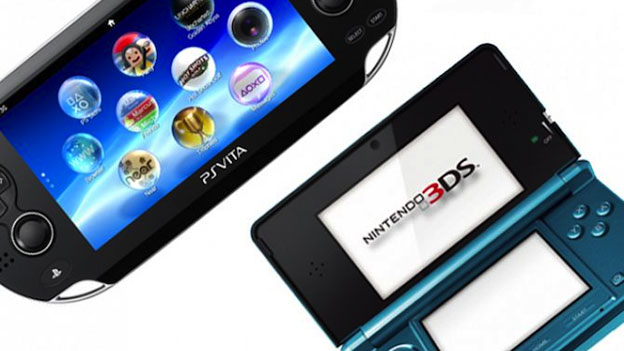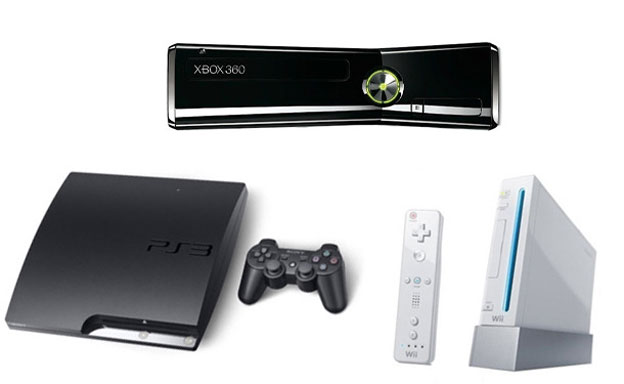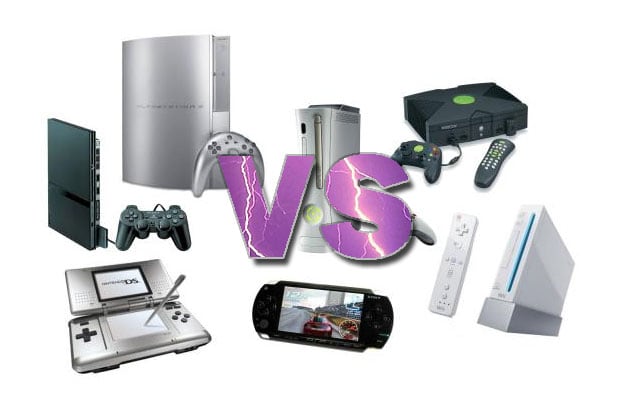Handhelds vs. Home Consoles
Though there are plenty of arguments in the gaming world (PS3 vs. Xbox 360, casual vs. hardcore, etc.) there is one battle that has been waging since the early ’90s: handhelds vs. home consoles. It may seem a bit ridiculous, but when you think about it, these two types of hardware have carved out very different places in the gaming landscape over the years, and are finally in a place where they can fairly be put head to head. So without further ado, let’s get this rumble started!
Round One: Value
The first question in any resourceful consumer’s mind is what they are actually getting for their money. Immediately, it looks like handhelds might win this round, as they are generally cheaper than regular consoles and have their own display, which means you don’t need to already have a TV to play them. However, the answer isn’t as simple as just a price point. Consider this: Though both current-generation handhelds (3DS and PS Vita) are capable of running apps, downloading video content, and even streaming Netflix, home consoles like the Xbox 360 and the PlayStation 3 also feature DVD (and Blu-Ray in the case of the PS3), as well as exclusive streaming content from partners like ESPN. Though the PS Vita does have an obvious leg up in the handheld market here (The PlayStation Network library of video content is impressive and the HD display is easy on the eyes) you can’t beat a home console for family entertainment value.
But video playback isn’t the only aspect in which consoles have handhelds beat. Add onboard local multiplayer support, better processing support for big games, and, of course, expandable abilities through peripherals like the Move and Kinect and you’ve got a total entertainment package that justified the extra $50-$100 investment. Sure, the display is not already included, but you’ve already got a TV at home, don’t you? That’s why this round has to go to home consoles.
Round Winner: Home Consoles

Round Two: Variety of Games:
This is another area where it seems like handhelds have the market cornered, but let’s think this one through a little bit more. Handhelds definitely feature a lot of games that wouldn’t do as well on a console, such as JRPGs, puzzlers, and quirky little niche titles that don’t really “fit” on a big console. However, if you look at the breadth of content on consoles, you’ve got shooters, motion-control games, and western RPGs that just can’t be duplicated on a handheld. Even though games like Super Mario 3D Land and Uncharted: Golden Abyss are coming extremely close to delivering a console experience on a handheld, the full experience isn’t quite there yet.
Though both handhelds and consoles feature their own varieties of games, this round again has to go to the home console, due to variety in both genre and wealth of overall games.
Round Winner: Home Consoles
Round Three: Life of System
Though we would all like consoles to last a decade each, this thought isn’t exactly realistic. With the rapid rate at which technology is moving forward, video game consoles (of both the handheld and home variety) are outdated before they are even released, and companies have to scramble to keep pace with consumer demands for the latest and greatest.
However, because handhelds are generally pretty inexpensive, they’ve done a better job of keeping up with demand in this area. If we look at the last generation of handhelds (the PSP and DS) both of these handheld consoles went through several small upgrades that provided subtle upgrades to both hardware and firmware to keep pace with current trends in the marketplace. Though consumers (including myself) tend to complain every time they have to shell out money for an updated gadget, updated models like the PSP-3000 and DSi still sold several units. In a world where everyone’s shelling out $200 a year for the next iPhone, it isn’t really that hard to imagine gamers refreshing their handheld console every few years.
Round Winner: Handhelds
Round Four: Durability
How well your system stands up to damage is something that you have to think of in very general terms. You can’t really compare Mike, with his habit of chucking controllers, with Joe, who keeps his video game console dust-free and next to a HEPA filter and takes it apart every year to clean it. However, if we remove personal behavior from the equation, a real disparity emerges between home and handheld consoles.
The current-generation home consoles have been plagued by a whole slew of colorful errors: red rings of death, yellow lights of doom, and even the delightfully more numerical e74 errors have caused home console owners some serious grief. However, handhelds have not had the same level of technical issues, in part because they are designed to be thrown in backpacks and kept in pockets. Though some DS and 3DS owners have reported the odd issue with screen separation and button malfunction, these issues have never been on the scale of home console problems. For that reason, this round has to go to the handhelds.
Round Winner: Handhelds

Bonus Round: Future Viability
So handhelds and consoles are basically tied for all the things that really matter to consumers at this moment. But I would be remiss if I didn’t at least mention the future of home and handheld consoles. While next-generation versions of the PlayStation and Xbox brands are probably far into development, I don’t know how sure handheld console makers are about whether there will even be a next generation. With social gaming on sites like Facebook growing in popularity, and smartphones occupying valuable pocket space, it looks like handheld game devices are getting edged out of the market. And this isn’t even considering the fact that handheld consoles are getting more expensive as well. Both the PS Vita and 3DS originally sold for prices that were far above what a consumer would pay for the latest iPhone or Android smartphone, and the amount of disposable income consumers want to spend on yet another handheld device will probably shrink as phones get more expensive. Unfortunately, there’s some serious cannibalism happening in the handheld market, and I don’t know how relevant handheld consoles will be in future cycles. Home consoles, on the other hand, don’t have any real competition (except for PCs, but that hasn’t changed in the last two decades), and I don’t see the home console wars dying down any time soon.
Round Winner: Home Consoles
Grand Champion: Home Consoles
By a narrow margin, it seems like home consoles edge out the handhelds. Though handhelds are generally cheaper and more durable, the breadth of games and value for money can’t be beat with a home console. Not to mention, the future seems very bright with home consoles, at least for now.
 | By Amanda L. Kondolojy Senior Contributing Writer Date: February 2, 2012 |
*The views expressed within this article are solely the opinion of the author and do not express the views held by Cheat Code Central.*
